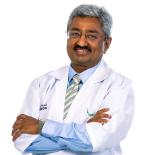About Thoracic Surgery
What is Thoracic Surgery
Thoracic surgery, encompassing procedures on vital organs within the chest cavity, such as the heart, lungs, and esophagus, stands as a pillar of modern medical advancement. Thoracic surgeons, often part of cardiothoracic surgery alongside cardiac specialists, excel in operations involving the heart, lungs, esophagus, and major chest blood vessels. These surgeries also include restructuring bone and supporting tissues within the chest cavity, delivering specialized care for various conditions
Conditions Managed by Thoracic Surgery
Thoracic surgeons specialize in the intricate realm of chest and upper abdomen disorders, offering specialized care for various conditions. They navigate the complexities of:
- Heart-related ailments, including congenital issues, irregular rhythms, coronary artery disease, valve disorders, and heart failure
- Vascular conditions, including stretched or weakened blood vessels, known as aneurysms, requiring meticulous surgical repair to prevent potentially life-threatening complications
- Surgical interventions, such as heart or lung transplants, vital for patients with severe cardiac or respiratory conditions
- Lung cancers requiring meticulous surgical precision for effective treatment
- Diseases of the esophagus, encompassing tumors, swallowing difficulties (dysphagia), gastroesophageal reflux disease, Barrett’s esophagus, and hiatal hernias
- Structural anomalies and injuries to critical structures, such as the trachea, pleura, mediastinum, chest wall, and diaphragm
In the hands of thoracic surgeons, patients with these complex conditions find tailored treatments and advanced surgical techniques to restore health and improve quality of life.
When to Consult a Thoracic Surgeon?
Consulting a thoracic surgeon often begins with a referral from a primary care physician, cardiologist, pulmonologist, or gastroenterologist. These specialists may suggest a consultation with a thoracic surgeon if they suspect a condition involving the heart, lungs, esophagus, mediastinum, or chest wall that could benefit from surgical intervention.
Diagnosis
A comprehensive interview and physical examination will be conducted during the initial appointment with the thoracic surgeon. The surgeon will meticulously review any previous diagnostic tests, such as echocardiograms, X-rays, or CT scans.
Following this thorough review, the surgeon will discuss the findings in detail. It includes explaining the diagnosis and outlining the proposed treatment plan. Depending on the results, the plan might involve surgery, additional tests to gather more information or a strategy for ongoing monitoring of the condition. Some of these treatment approaches include:
- Imaging Review: Analyzing X-rays or CT scans guides surgical planning accurately.
- Additional Testing: Pulmonary function, cardiac stress, or blood tests help assess patient readiness.
- Specialist Consultation: Collaborating with cardiologists or pulmonologists ensures comprehensive evaluation.
- Preoperative Counseling: Discussing surgery risks, benefits, and alternatives helps make informed decisions.
- Surgery Preparation: Detailed instructions on medications, fasting, and lifestyle adjustments are vital.
- Physical Conditioning: Prescribing exercises or rehab for optimal pre-surgery health aid in recovery.
Types of Thoracic Surgeries
- Lobectomy: A common surgical procedure involving the removal of a lobe in the lung affected by cancer, infection, or chronic conditions like COPD
- Pneumectomy: Complete or partial removal of the lung to treat advanced lung cancer or severe lung conditions
- Esophagectomy: A procedure involving complete or partial removal of the esophagus to treat conditions such as esophageal cancer or severe reflux disease
- Hiatal Hernia Repair: Surgical correction of a hernia by repositioning the stomach and repairing the diaphragmatic opening
- Wedge Resection: Removal of a small, wedge-shaped portion of the lung containing abnormal cells, often to treat early-stage lung cancer
Advanced Techniques in Thoracic Surgery
- Image-Guided Surgery: Real-time imaging during surgery helps enhance precision, which is particularly beneficial in complex cases or when tumors are challenging to locate.
- Video-Assisted Thoracoscopic Surgery (VATS): Using a thoracoscope and small incisions in the chest, this technique is ideal for treating lung cancer, esophageal disorders, and mesothelioma with reduced trauma and improved outcomes.
- Laparoscopic Surgery: A minimally invasive approach using small incisions and specialized tools leads to faster recovery, reduced pain, and minimal scarring.
- Robot-Assisted Thoracic Surgery (RATS): Employing robotic technology for precise and efficient surgeries is particularly beneficial for intricate procedures such as thymectomy or esophagectomy.
Postoperative Care and Recovery in Thoracic Surgery
After undergoing thoracic surgery, proper postoperative care is crucial for a smooth recovery and optimal healing. Here are key points to understand about postoperative care:
- Close Monitoring: Patients are closely monitored in the recovery room during the immediate postoperative period. Skilled nursing staff closely observe vital signs, pain levels, and overall condition.
- Pain Management: Effective pain management is essential for patient comfort and mobility. The team utilizes a combination of medications, including oral pain relievers and regional anesthesia techniques, to control postoperative discomfort.
- Respiratory Care: For patients undergoing lung surgeries, respiratory therapy is vital. Breathing exercises, incentive spirometry, and chest physiotherapy are encouraged to prevent complications such as pneumonia and promote lung expansion.
- Wound Care: Surgical incisions are carefully examined to prevent infection and promote healing. Patients are instructed on proper wound care techniques, such as keeping the incision clean and dry.
- Physical Activity: Gradual mobilization and gentle exercises are introduced early in recovery to prevent stiffness and promote circulation.
- Diet and Nutrition: A balanced diet rich in nutrients is essential for healing. Patients are provided with dietary guidance and may receive nutritional supplements if needed.
- Follow-Up Appointments: Scheduled follow-up appointments allow the team to monitor progress, address concerns, and remove sutures or staples as needed.
By following these guidelines and staying in close communication with the healthcare team, patients can experience a smoother recovery process and a quicker return to their daily activities. Overall, thoracic surgery stands at the forefront of medical innovation, offering tailored treatments for various complex conditions. Patients receive comprehensive support on their journey to restore health and well-being with advanced techniques and meticulous postoperative care.
Our Team of Experts
View allOur patient’s stories
View allRelated Specialities
Other Specialities
-
Explore Hospitals for Thoracic Surgery
-
Explore Doctors for Thoracic Surgery by Hospital















